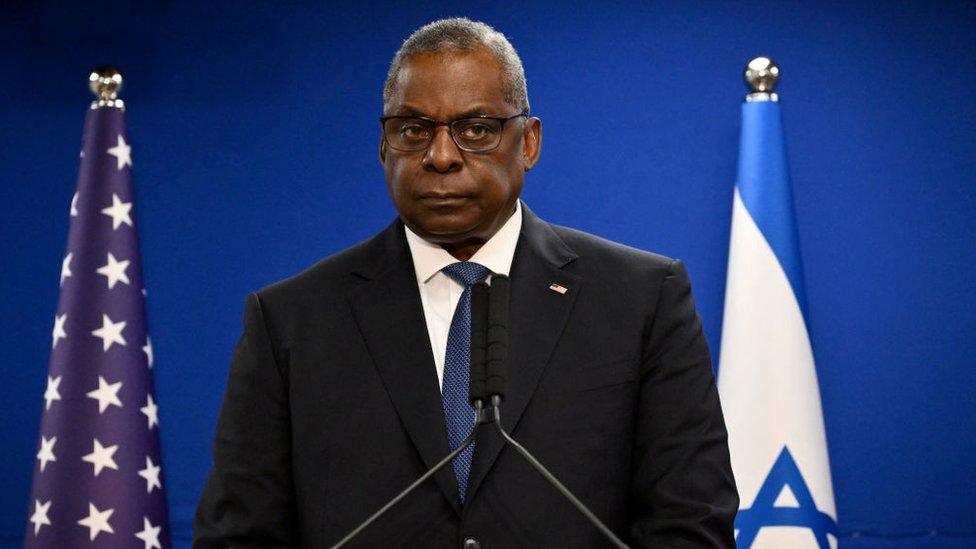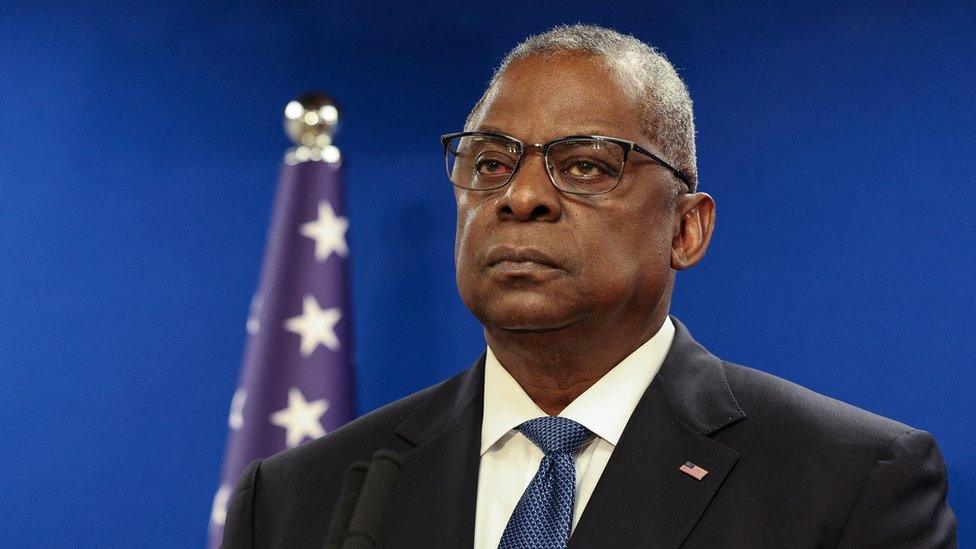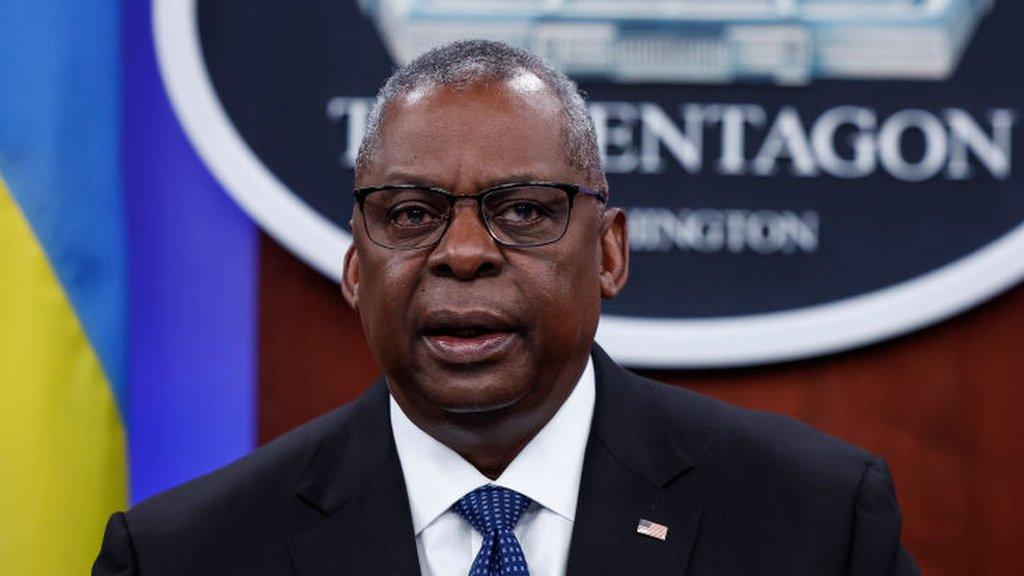Defence Secretary Lloyd Austin apologises for secretive hospital stay
- Published
Watch: "I did not handle this right," Lloyd Austin apologises for his previous hospital stay at the beginning of February
US Defence Secretary Lloyd Austin has said he is "deeply sorry" for failing to notify the chain of command when he was admitted to hospital in December.
Mr Austin, 70, was released last month as he continues to recover from treatment for prostate cancer.
"I did not handle this right," he said. "I should have told the president about my cancer diagnosis."
Pentagon chiefs are supposed to be available at a moment's notice to handle any national security crisis.
"I take full responsibility and I apologise to my teammates and to the American people," said Mr Austin in his first news conference since returning to work.
"As a rule I don't talk about conversations with my boss, but I can tell you I've apologised directly to President Biden.
"And I've told him that I'm deeply sorry for not letting him know immediately that I received a heavy diagnosis and was getting treatment."
He said he had never directed anyone in his staff to hide his time in hospital from the White House or the public, but did not answer questions about whether staffers had acted outside of his orders.
"I don't think I've created a culture of secrecy," he told reporters on Thursday.
The defence secretary is just below the president in the chain of command for the US military, and is regarded as one of the most important members of the Cabinet.
Mr Austin had surgery to treat prostate cancer in late December. He was readmitted to hospital on New Year's Day with severe leg pain and pain in his hip and abdomen because of complications related to the procedure.
An evaluation revealed a urinary tract infection and he was transferred to the intensive care unit for further treatment. He remained in hospital for more than two weeks.
Senior defence officials and the White House did not learn that Mr Austin was seriously ill until three days after his re-admission.
The audio of an emergency call made on the day was released by officials as the result of a freedom of information request.
The heavily redacted four-minute call features a caller asking that an ambulance "not show up with lights and sirens" to transport Mr Austin to Walter Reed National Military Medical Center in Maryland.
"We're trying to remain a little subtle," said the caller, who has been identified by US media as a member of Mr Austin's staff.
He remained active in his role amid his recovery, and authorised multiple strikes against Yemen-based Houthi militants in the Red Sea from his hospital bed.
President Biden has said he remains confident in his secretary's leadership, but that it was "sub-optimal" that he had not disclosed the seriousness of his illness.
The incident prompted security and transparency concerns and three investigations have since been launched into Mr Austin's handling of the situation. He has been called to testify in front of a Congressional committee on 14 February.
Related topics
- Published10 January 2024

- Published7 January 2024

- Published17 January 2024
